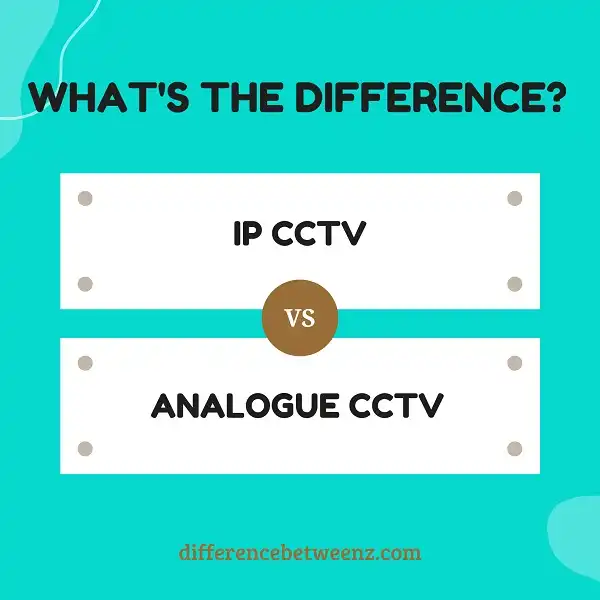Analogue CCTV has been around for many years and is still a popular choice for businesses and homeowners. However, IP CCTV is becoming more and more popular due to its features and benefits. So, what are the differences between analogue and IP CCTV? Let’s take a look.
What is IP CCTV?
IP CCTV is a type of CCTV (Closed Circuit Television) that uses an IP network to transmit video data. IP CCTV cameras are used in a variety of applications, including surveillance, security, and telemetry. IP CCTV cameras are typically lower in cost than traditional CCTV cameras, and they offer a number of advantages over their analogue counterparts.
For example, IP CCTV cameras can be placed virtually anywhere there is an internet connection, making them ideal for remote monitoring. In addition, IP CCTV cameras offer higher resolution than analogue CCTV cameras, and they can be integrated with other IP-based systems such as access control and burglar alarms. As a result, IP CCTV is quickly becoming the preferred choice for many businesses and organizations.
What is Analogue CCTV?
Analogue CCTV is a type of surveillance system that uses analogue signals to capture and record video footage. Analogue CCTV systems are typically used in commercial and industrial settings, as they are more reliable and durable than digital CCTV systems. Analogue CCTV cameras are connected to a DVR (digital video recorder) using a coaxial cable, and the recorded footage can be viewed on a monitor or TV. Analogue CCTV systems can also be integrated with other security systems, such as alarm systems and access control systems. Analogue CCTV is an effective way to deter crime and protect property, and it can be used in conjunction with other security measures to create a comprehensive security solution.
Difference between IP CCTV and Analogue CCTV
IP CCTV and analogue CCTV are the two main types of Closed Circuit Television (CCTV) systems. Analogue CCTV cameras transmit video signals using coaxial cables whereas IP CCTV cameras encode and compress video signals before transmitting them over the internet using an ethernet cable. IP CCTV has many advantages over analogue CCTV such as higher-quality images remote accessibility and easier scalability. However, IP CCTV systems are generally more expensive to install and maintain than analogue systems. It is important to choose the right type of CCTV system for your needs as each type has
different advantages and disadvantages.
Conclusion
So, what is the difference between IP CCTV and analogue CCTV? The answer is quite simple – digital systems are far more efficient than their analogue counterparts. Analogue CCTV cameras produce a signal that’s sent to a DVR for recording, while IP cameras send a digital signal directly to a recorder or computer. This means that with an IP system, you can see live footage from multiple cameras on one screen and recordings can be easily searched and exported. Analogue systems also require extra hardware (a video balun) to convert the analogue signal into a digital format so it can be processed by the recorder.


